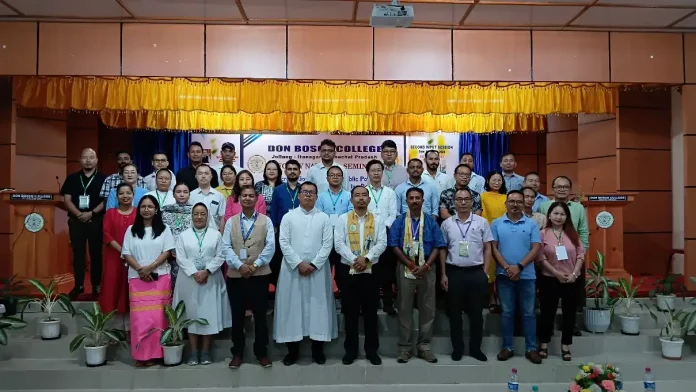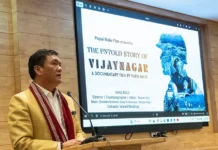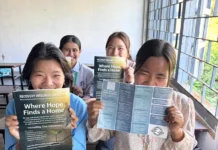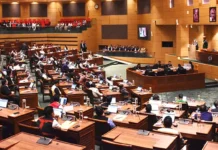Seminar on climate change
JOLLANG, 9 Aug: The two-day national seminar on ‘Democratic governance and public policy for navigating climate change’, organized by the political science department of the Don Bosco College (DBC) here, concluded on Saturday with submission of research papers, and expert recommendations on combating climate change.
Participating in the second and final day of the seminar, Chief Conservator of Forests (CCF) Samuel Changkijah recommended codifying and protecting traditional ecological knowledge and integrating it into policy and education. He also recommended recognizing tribal stewardship as vital for climate resilience, and introducing community-led ecotourism and biodiversity farming.
Speaking on the topic ‘Traditional ecological knowledge and indigenous forest governance in climate policy’, he said this knowledge system is deeply rooted in traditional practices, particularly among the tribal communities, and has been passed down through generations orally.
Stating that Northeast India forms a critical ecological transition zone, Changkijah said, “It is home to 200 plus tribes, each with a unique relationship with their environments. They have their systems to protect their environment through sacred groves and forests protected by taboos and deities, sustainable farming like jhum, paddy-fish cultivation, terrace farming, etc.”
He said that this traditional knowledge not only regulates biodiversity but also complements modern conservation efforts.
Changkijah also touched on the evolution of environmental laws in India and how these laws also recognize the traditional ecological knowledge.
The CCF also shed light on the Pakke Declaration-2047, a landmark policy innovation adopted by the Government of Arunachal Pradesh in 2021.
He said that the Pakke Declaration is grounded in community-based conservation and traditional knowledge systems, and is a model for integrating ecological justice with tribal empowerment.
NIT Jote Management & Humanities HoD Prof Mihir Kumar Shome spoke on ‘Public private partnership in climate resilient infrastructure and inclusive growth in hilly regions towards sustainable development growth’.
NABARD Itanagar Assistant General Manager Pankaj Kumar spoke on ‘Climate resilient agriculture and financial inclusion – NABARD’s role in sustainable rural development’.
He said that while agriculture is the backbone of the Indian economy, it is impacted by climate change.Kumar said that Arunachal Pradesh is highly vulnerable to climate change due to its unique topography, “which has led to drying of springs, low inflows of river, land degradation, reduced yield, etc.”
AUS Political Science HoD Prof B Kumow spoke on ‘The impact of climate change in agriculture and allied sectors and democratic governance response aspects’.
A total of 28 research papers – 10 on the theme ‘Institutions, community and climate adaptation’, eight on the theme ‘Social justice, gender equity and sustainable development’, and another 10 on the theme, ‘Legal, environmental and policy issues’ – were presented during the seminar.





